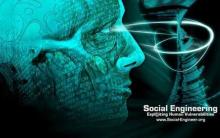After installing the operating system, users of Windows 7 and higher may encounter a problem where the laptop screen goes blank when connecting and disconnecting the charger. However, here it is worth distinguishing between symptoms when the screen goes blank for only a few seconds, but the system continues to work, and when the screen becomes dark and the desktop is poorly viewed. Therefore, we will consider examples of how to solve each problem separately.
The screen goes out when the charging is disconnected / connected
If you have recently reinstalled your operating system and are experiencing an issue where the screen of your laptop with an Intel processor goes blank when connected to a charger (or when disconnected), then you should follow these steps:
- Open the Intel HD Graphics Control Panel. We select the section "Power supply".
- In the section "Switching the refresh rate of the screen" set "Disable".

- Next, select the "Powered by the network" plan.

It is worth noting that this issue is related to switching graphics display modes. Therefore, so that the screen does not go out, it is worth turning off such a switch.
You can also try resetting your power settings. To do this, go to the "Control Panel", select "Power supply". Next, select "Power plan settings".

We select "Restore default parameters for the plan".

We save the changes.
The laptop screen goes blank when charging is connected, but the desktop is faintly visible
This problem is related to the BIOSa settings. To solve it, you should do the following:
- When turning on the laptop, we press "F2" several times to get into the BIOS.
- Then go to the "Main" tab and look for the line "Graphic mode" or "Graphic device". We click "Enter". Set the value to "Descrete".

- Click "F10" to save the result.
It is also worth rolling back the video card drivers if such an error occurred for no reason after the next computer was turned on.
Some laptop owners may encounter a situation where the display of the device turns black when the power adapter is connected. Someone solves this problem by giving the laptop to a service center, while, without even suspecting that it can often be solved by oneself in just a few minutes, the main thing is to determine the cause of this phenomenon.
Incorrect power settings
Quite often, users ask the question: why does the laptop screen darken when charging, after updating the OS? The answer may be the fact that during the update process, the laptop's power settings can be set in an arbitrary way, which, in turn, will lead to saving battery when the power adapter is connected. This problem is solved as follows:
- On the laptop battery icon, which is located on the taskbar, right-click and select "Power supply" from the context menu.
- On the right side of the window, select "Turn off the display", then - "Change advanced power settings."
- Scroll down the menu to the "Display" item and select the "Screen brightness" sub-item. Two brightness values will appear: when on battery and when on AC. The value of the second indicator, that is, when the charger is connected, should be set to a level acceptable to you, for example, to 100% - this means that when connected to the network, the display brightness will increase to maximum values.
It also makes sense to check the adaptive brightness control parameter - if it is configured in such a way that when the laptop is connected to the network, it activates, then this may be the reason that the screen darkens if the room has a sufficiently high light level.
After that, click the "OK" button to save the settings.
Configuring BIOS
Another common reason why the laptop screen may go out when charging is the BIOS settings, which are responsible for the operation of the video adapter. To change them, when turning on the device, you must hold down F2 or Del, then, in the BIOS that opens, do the following:
- Select the "Main" tab in which to find the line "Graphic mode" or "Graphic device".
- Press the "Enter" key on it, and set "Discrete" in the context menu that appears.
- Then press the F10 button and save the changes.
Video card software problem
In modern laptops, as a rule, there are two video cards - integrated and discrete. Discrete displays an image while performing daily tasks, such as using various programs, watching videos, and so on. Integrated, in turn, is responsible for image processing when launching "demanding" 3-D applications, such as computer games.
Each video adapter has its own driver and, as often happens, during the next system update, the driver is installed correctly on a discrete video card, but not on an integrated one. In this case, if the corresponding settings are set on the laptop, when the integrated video card is switched on when powered from the mains, various problems with the operation of the display may appear, in particular, its dimming. Of course, you can change the parameters in the power supply settings so that the discrete video card continues to work when powered from the network, but it does not differ in performance, moreover, its service life will be significantly reduced.
This problem can be solved by rolling back the system to a state where all components worked correctly. For this:
- Go to the "Control Panel" and find the "Recovery" section.
- Select "Start System Restore", wait for the system to prepare for the operation and click "Next".
- You will see a list of points, indicating the date and time of creation. After selecting the point during the creation of which your computer worked as expected, you need to click "Next" and then "Finish" to start the operation.
Upon completion of the process, incorrectly installed drivers will be removed, and the problem of dimming the screen when connected to a laptop charger should be eliminated.
If all else fails
If after following the above methods, the answer to the question "Why is the laptop screen darker when charging" is not found, and the display continues to darken when connected to a charger, most likely there are problems with the hardware component of the device. In this case, if you do not have the appropriate knowledge and skills, it is best to take your laptop to a service center.
A similar problem with MS-1761. Turns off under load.
Lowering the voltage on the video card (570M) from 0.81V to 0.80V did not help. (or rather helped, but partially - the laptop still turns off sooner or later).
Dancing with a tambourine also partially helps through the power plan in which in the section: "processor power management" we set in the menu: "maximum processor state" the value is less than 100% (even with a value of 99% of shutdowns it becomes less).
Well, of course, you can lower the frequencies on the video card itself, but here another rake comes out in the form of switching from 3D Mode to 2D in which, most likely, somehow the 2D mode "sticks and when you switch to 3D mode again, the fps drops significantly. A simple example - This is a combination of alt + tab from the game to the desktop and back. But subsidence does not always happen, but according to a random principle, you can return the position by increasing the frequencies on the video card to the factory ones or close to them, and then again at reduced frequencies at which the laptop worked stably, but this does not always work, and not the first time, and often when the normal number of fps resumes, at low frequencies, after all these actions, the laptop is cut off again.
I also noticed that the THRM sensor on the motherboard began to warm up (this is most likely one of the bridges). I don't remember the exact chronology, after which it started to warm up, but the temperature can reach 89 degrees and above, after which the laptop naturally turns off (I was just lucky to see this temperature several times before it was turned off). And it heats up regardless of whether the laptop is powered by the battery or from the network. (I turn on the laptop on a battery, I launch a browser with many windows and voila, I see on the sensor a temperature close to boiling water while the windows are loaded, then the temperature drops but still remains around 70-75 degrees)
Just today I tried to change the processor. My 2720M on 2760QM and shutdowns became several times less, I did not wait for them in disassembled form, and when I assembled they appeared again, but this time it is enough to lower the maximum processor state to 98% and everything works stably even with the factory settings of the video card frequencies (with underestimated voltage)
As a result, I am interested in the opinion of what is still wrong here:
_chipset (disassembling there I saw a pathetic semblance of a radiator made of a piece of thin metal, but replacing it with a normal radiator did not help)
_power control unit (when the battery is disconnected, it can sometimes turn off if you pull the power plug in the laptop socket)
_video card (in the service center there is no replacement for a video card to test, apparently there are no signs of physical defects as a result of overheating or any other influences. At the very beginning of the problems there were minor artifacts, but then they disappeared and do not appear anymore)
_processor (which is unlikely since the new one was also turned off)
_complex problem with several components
I looked after myself a 675M video card, judging by several messages on this forum and others, it should be suitable since it is also based on the Fermi family, and the Americans (they took a laptop from them) answered that the maximum possible video card is the same 570 because 580 needs more food, and for the next generations they did not even speak.
So is it possible to take this video card (675M) which was taken out of MS-1762 (MSI GT 70) for installation in my MS-1761.
I would be grateful for any answers in essence, since I have already "waved" to fight with my laptop. No strength.











Prolongation of registration of participants in the "Living Classics" competition!
Who deleted me from friends on VKontakte All friends disappeared from the contact
Which operator was the best in Russia
Double cassette tape recorder
"VK" can be closed for a long time